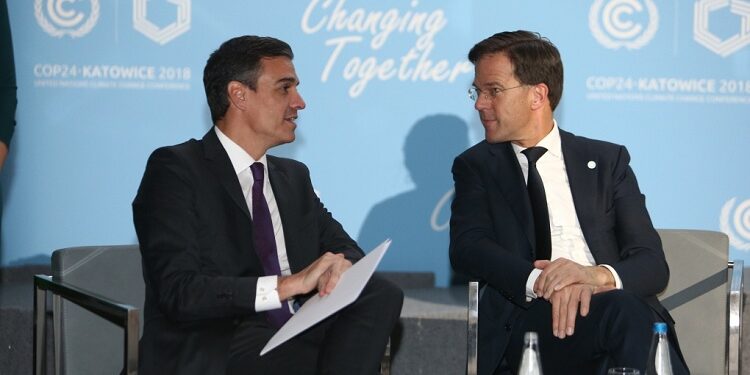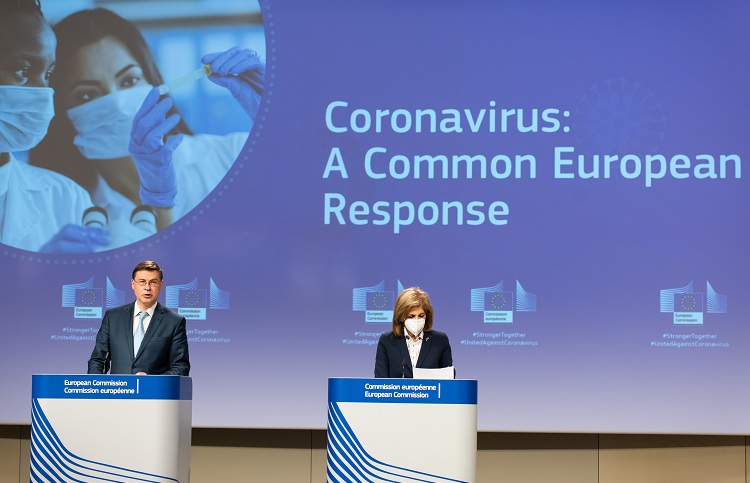Eduardo González
The President of the Government, Pedro Sánchez, has joined forces with his fiercest rival during the discussions on the European Recovery Fund, the Prime Minister of the Netherlands, Mark Rutte, to present, with a view to this week’s European Council, a proposal for European technological and health strategic autonomy “without isolationism or protectionism”.
The European Council, which was initially scheduled to be held in person but will finally be held telematically because of the COVID-19 situation, will devote today’s first day to discussing the pandemic, with particular attention to the distribution of vaccines (following the presentation of the new transparency and authorization mechanism for exports by the Commission), the epidemiological situation and the coordinated response to the crisis. Subsequently, the Heads of State and Government will discuss the Eastern Mediterranean and EU-Turkey relations, the situation in Russia and relations with the United States, with the participation by videoconference of US President Joe Biden.
The second and final day tomorrow will be devoted to fundamentally economic issues, with special attention to the priorities of the single market, industrial policy and digital transformation. On the first two points, according to Moncloa sources, Pedro Sánchez will ask his European colleagues to complete the internal market and to carry out a more in-depth analysis on the industrial sectors that will need more support, such as high technology or national or multinational industrial projects, as well as on the role of the national recovery plans in the development of the industrial package. The Spanish government will also ask for a European fiscal policy that has as its top priority the economic recovery after the COVID-19 crisis and that clearly and forcefully excludes the withdrawal of fiscal stimuli ahead of schedule or the tightening of fiscal policy for the countries most affected by the recession.
In any case, one of the most relevant points of the second day of the Council will be the debate on European strategic autonomy. According to the aforementioned sources, the President of the Government will defend before the rest of the European leaders a balanced position between the two most radical positions on this issue: that of the countries that are wary of strategic autonomy for fear that it might lead to protectionism, and that of those, such as France and Italy, who defend a clearer strategic autonomy, even if this entails the application of protectionist policies in matters such as value chains or aid to European companies. According to Moncloa sources, Spain will defend strategic autonomy as “the capacity to make decisions autonomously”, but without closing itself off in economic nationalism.
To reinforce this argument, Pedro Sánchez and Mark Rutte have signed a joint letter addressed to the President of the European Commission, Ursula von der Leyen; to the President of the European Council, George Michel; and to the rotating President of the Union, the Portuguese Prime Minister, António Costa, in which they present a thirteen-point proposal to reinforce “strategic autonomy” in strategic sectors, such as technology and health.
The aim of this proposal by two leaders – who a few months ago held radically opposing positions on the European Recovery Fund – is to generate an “own agenda” to “reduce dependence” on third countries and to promote a “stronger, more resilient and internally supportive Europe” and, at the same time, to preserve “the EU’s commitment to open economies and societies”. “The EU’s strategic autonomy does not imply isolationism or economic protectionism”, but “must be based on principles of multilateralism, cooperation and rules-based free trade, without undermining the interests of the least developed countries”, the letter adds.







